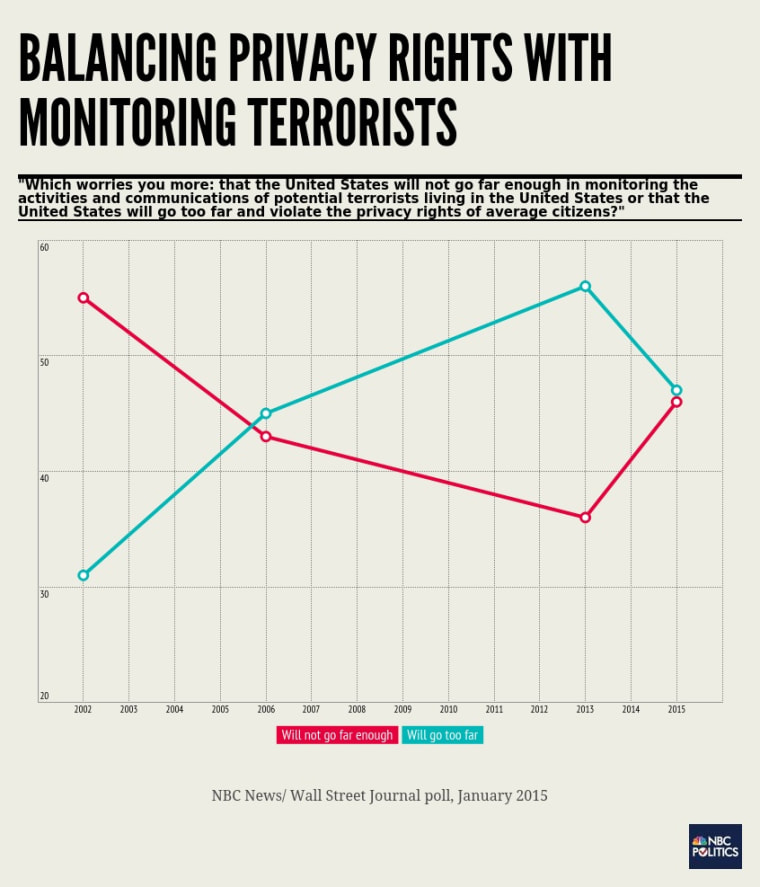Kentucky Republican and 2016 presidential candidate Sen. Rand Paul launched a filibuster-like speech Wednesday in opposition to the NSA's controversial bulk collection of telephone data.
Polling shows that Americans have shifted significantly over the past twelve years when it comes to the issue of balancing privacy rights with the government's monitoring of potential terrorists.

In a January 2015 poll, respondents were asked: "Which worries you more: that the United States will not go far enough in monitoring the activities and communications of potential terrorists living in the United States or that the United States will go too far and violate the privacy rights of average citizens?"
Forty-six percent of respondents said they were more worried that the government would not go far enough to monitor terrorists, while 47 percent said they were more concerned about government invasions of citizens' privacy.
But it's worth noting that the 2015 data showed a big shift from July 2013, which in turn was a reversal from a poll taken in December 2002.
In 2013, only 36 percent of people said that they worried that the government would not go far enough, while 51 percent said that they were concerned the government would overstep its bounds.
In 2002, just a year after the 9/11 attacks, those numbers were almost a mirror image, with 55 percent of Americans concerned that the government wouldn't do enough to thwart would-be terrorists.
- Carrie Dann